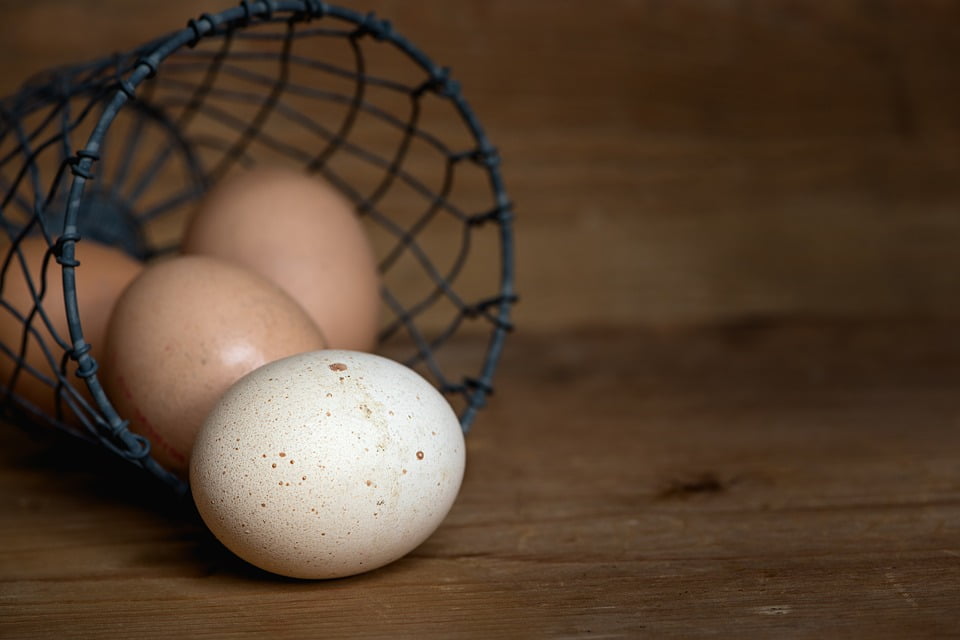This week is all about eggs; the collecting, the cleaning, and the storing! I’ll also touch on breeds of hens and what you should look out for.
Collecting and storing the eggs is probably the easiest part of taking care of chickens, which is great seeing as that’s the whole point! Check for eggs at least twice in the morning to collect any laid at night or early in the morning. Some recommend, depending on how many hens you have, returning a third time in the evening in case any were laid that day. Just be sure to be careful as mama hens can be protective of their unborn chicks.
Having said that it is not uncommon for the new moms to develop a taste for their own eggs! Chickens are opportunistic eaters and if their eggs get damaged they just might peck at the inside for a taste. Once they start they can’t stop so try to get the eggs quickly before this horrific habit starts.
Something you may not expect is that eggs can be left out at room temperature for about a month if you don’t clean them right away. Eggs are laid with a protective layer called bloom which keeps bacteria out of the egg and cleaning them will wash this layer away. You can keep them in a basket with straw, in an egg carton, or in a sealed container. You can even build a little crate using wood and hex netting specifically for your eggs.
You would wash them before eating and if you plan to refrigerate them then go ahead and wash away. When cleaning your eggs, there’s no call for chemicals or scrubbers, simply rinse or soak them in warm water. That’s it! So easy.
They last longer when refrigerated and taste best when eaten within the first 2 weeks. If you don’t have enough room then you can refrigerate some and leave the rest out at room temperature. Eggs can stay safe in the fridge for up to 6 months, but not beyond that point. If you want to be sure on the dates, then you can label the containers. If you’re not sure if an egg is still good, then simply place the egg in a bowl of water: if it sinks it’s good, if it floats it’s time to let that one go.


The number and color of eggs depends on the breed of the chicken. Some say that the color of the egg matters in taste or nutrition, but no studies have actually be done. If you prefer one color to another, then you can tell what color eggs a hen will produce by the color of their ears. For example: chickens with red ears will generally lay brown eggs and chickens with white ears will generally lay, you guessed it, white eggs.
Certain breeds of hens start laying between 4 and 5 months old and they continue to lay an egg every other day until up to the “peak productivity” age of 2 years. Beyond that age they can still lay eggs, but not as many and they stop laying around 3 years old. Other breeds that are raised for beauty or for meat tend to not produce on a schedule, they may lay seasonal eggs or just whenever they feel like it; those breeds aren’t good if you just want some free eggs.


I told you this series would be short! Even so, there is no shortage of things you could learn about chickens like their temperament, personalities, and social lives. Hens are interesting little creatures that are curious yet habitual, paranoid yet fearless. Whether you have been raising chickens for a long time or are just flirting with the idea you’ll need to know that it is hard work, but can be so rewarding in more ways than just free eggs.
Missed Last week’s chicken blog? Read it here!



